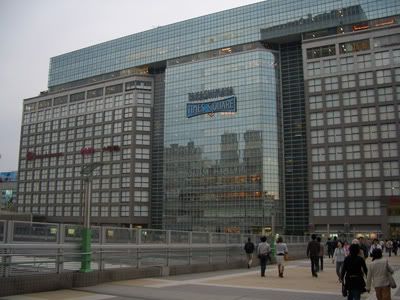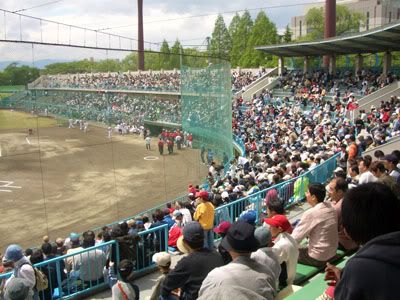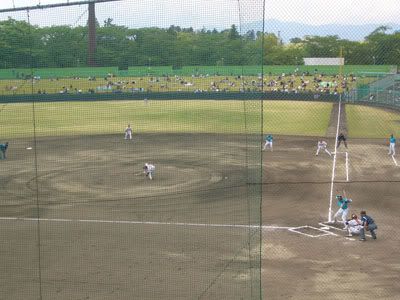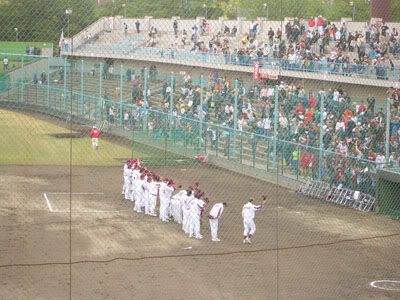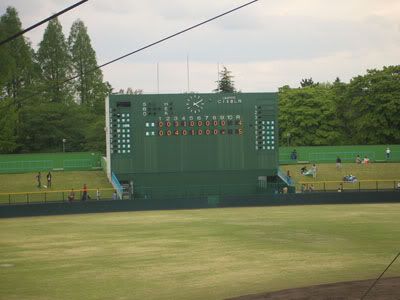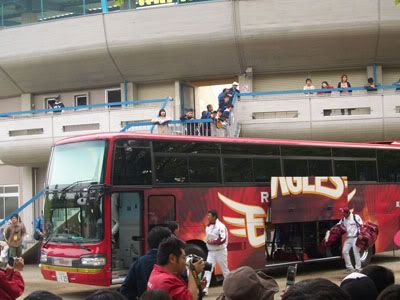YokohamaWe arrived at Yokohama city, the second largest city in Japan on the first day of the Tokyo 3 trip. It was 11am when we reached the heart of the commerical district; the Minato Mirai 21 (Port of the Future). The Minato Mirai subway brings us right into the middle of the commerical area. Upon leaving the subway, we were greeted by towering skyscrapers, in particular, the Landmark Tower, the tallest building in Yokohama. 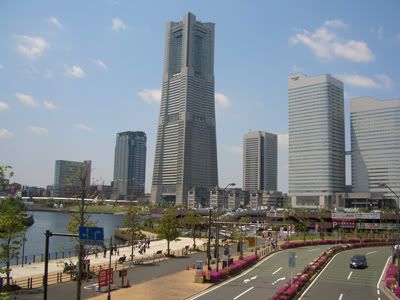
Fronting the Minato Mirai is a water-front park with amusement rides and shopping complexes.
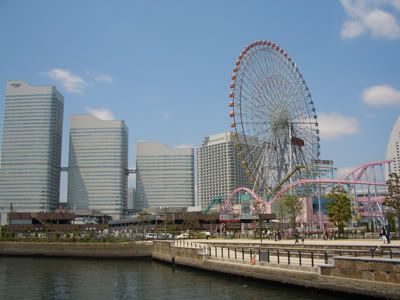
There are many opportunities for travellers and business workers in sun-bathing under the gentle sun of the spring season. We spent around an hour walking through the futuristic business district before adjourning to our next stop.
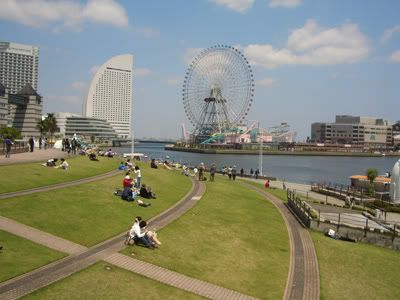
We arrived at the largest chinatown in Japan. It is totally packed with hordes of people; typical of chinatown. There are around 10 of such chinese gates and we ensure our route is planned in such a way that we are able to pass or have a shot at these gates.
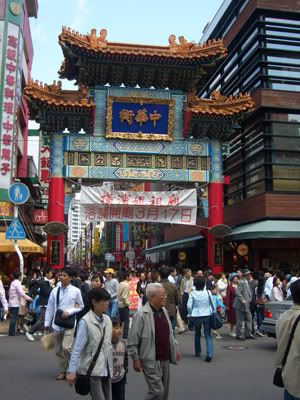
The yokohama chinatown is famous for its chinese bao and crusine. There are basically long queues every where but we eventually managed to have a shot at one of the shops. I decided to checked out their chinese competency and placed the order in mandarin. Well, they do not know what I am talking about so I have to revert back to Japanese. : P
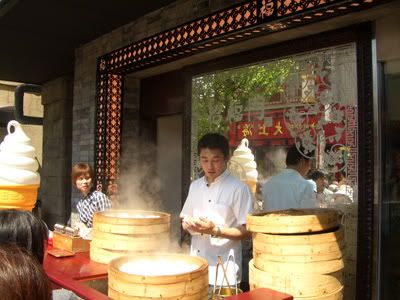
Right smack in the middle of chinatown is this temple where the contemporary gods of the chinese are worshiped.
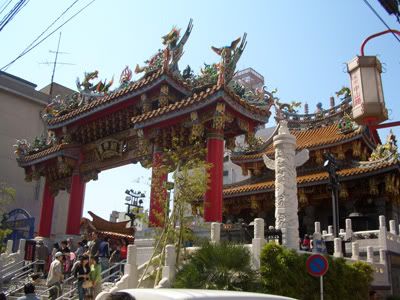
We had a quick lunch somewhere close to the chinatown and thereafter checked into our hostel. After putting our luggage aside, we went on to our main attraction of the day - Yokohama Sea Paradise. Getting there will require a trip via the JR Line follow by the Seaside Line. When we arrived at the Sea Paradise station, the beautiful sound and smell of the sea welcome us. The beach is quite crowded with lots of people.
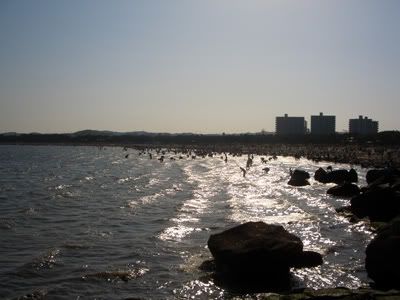
We went on to Sea Paradise which is located on a island. No cars are allowed on the island and the only way to it is to cross a bridge linking the mainland.
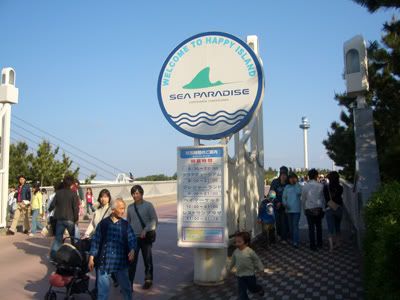
Sea paradise consists of a large aquarium and lots of amusement rides. One of the more famous ride is the Blue Fall shown below. Basically you will go all the way up to the tower and take a plunge down once in a while.
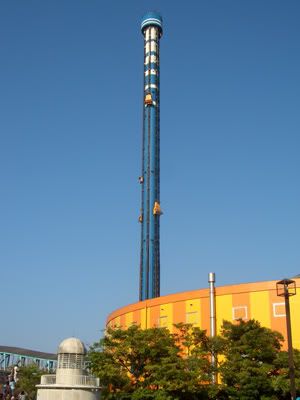
We got there just in time for the Golden Week special with performances by the Splash Circus. It is a 30 minutes long sea circus performance starting at 4pm where the acrobats are all from the West.
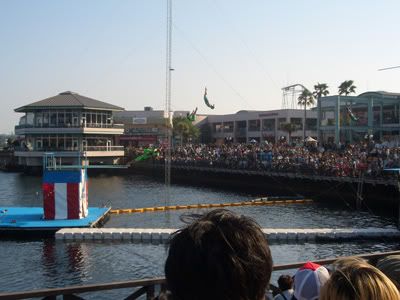
After the performance, we started joining in the queue for the twilight tickets where visits to all the sights and amusement rides cost only 2,500 Yen in all (half of the actual costs).We are daunted by the long queue snaking to the Dolphin Show so we go for the aquarium first. The aquarium at Sea Paradise is one of the largest in the world. It is also very beautiful and visitors will be dazzled by the immerse depth of the sea. Marine life from the deep oceans and corels are also featured here. There are many exotic and unique fishes placed on display.
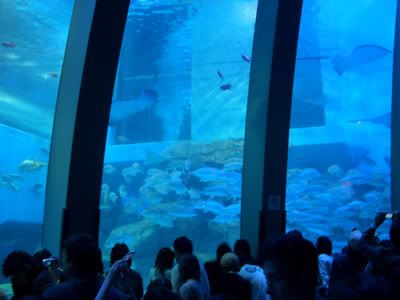
Going through the escalator which tunnel through the undersea aquarium.
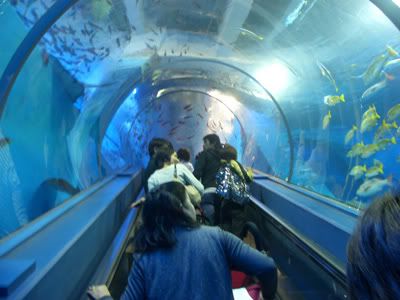
Once we have finished the aquarium which took us about an hour going through the 5 storeys, we went to the Dolphin Paradise which showcase the living space of the dolphins.
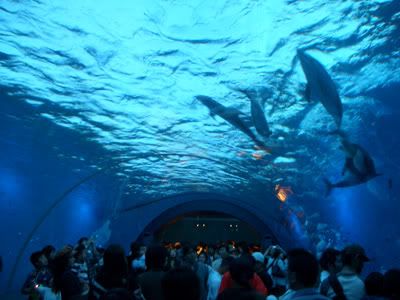
It is coming close to 6.45pm and we have to catch the Dolphin Show no matter what. The last show is at 7.30pm and we started joining in the queue. Thankfully we managed to get seats when we arrived at 7pm. And begin a 30 minutes wait. The crowd kept coming into the show until it is fully packed.
The show begin right on time with performances by walrus, pengiun and dolphins. It a splendid show and it made me realise that dolphins are really highly intelligent mammals.
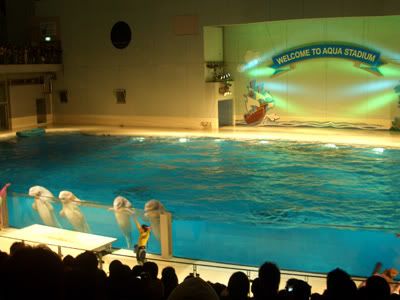
We left the dolphin show and proceed to our next event. The symphony fireworks highlight which is the special showcase of this Golden Week. Against the backdrop of classical symphony, the fireworks decorated the sky with multicolour splendour.
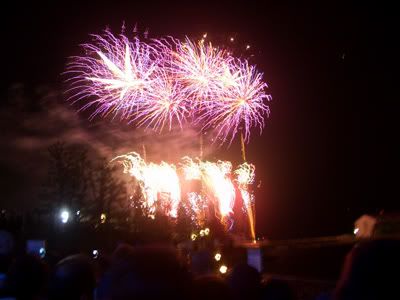
Here is quick shot of the Sea Paradise at night.
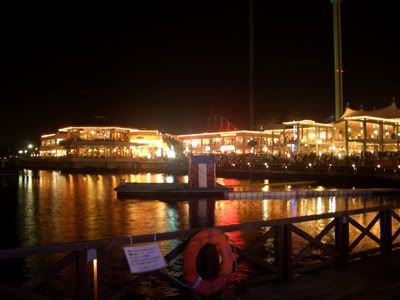
Back to our hostel; the Hostel A Silk Tree Yokohama, we were welcomed by the very friendly manager. He showed us around the rooms and gave us some basic instructions. We will be trying out traditional Japanese lodging this time round by sleeping on tatami mats. Breakfast is included and the prices are affordable. The only downside is you will have to pay 200 yen for a 7 minutes shower.
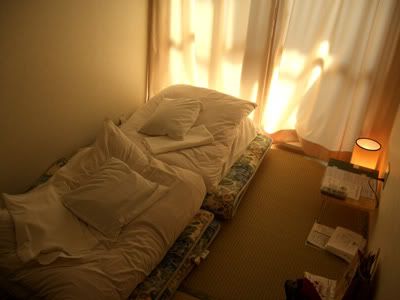
Kamakura
Kamakura is just 30 minutes south of where we are. The plan for today is to follow the recommended routes by the JNTO Practical guides here. We alighted at Kita-Kamakura station and proceeded to the first temple - Engakuji temple.
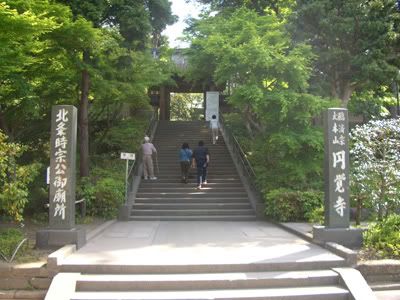
Going up the temple steps and we entered a unique structure which is called the san-mon (3 doors). The entire temple environs and gardens are landscaped in the traditional Zen manner.
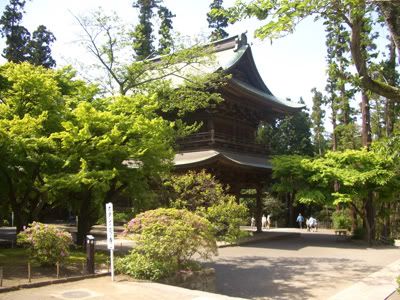
The temple is famous for its ancient bell which has to go high up the mountain steps. At the top there is a rest area where visitors can sample Japanese tea and enjoy the mountain top scenery.
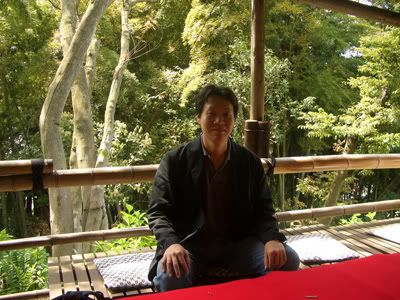
Thereafter, we took a 15 minutes walk to the next stop - Kenchoji temple. This is the top zen temple in the Kamakura area.
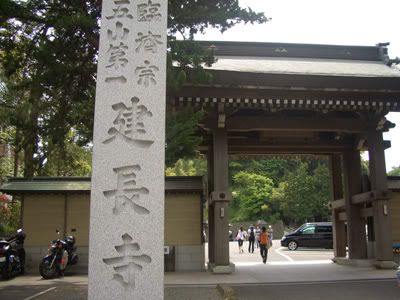
The temple is spacious and beautiful. We managed to catch a glimpse of a statue of Shakyamuni Buddha which depicts his 6 years intensive training. This hall is opened only for a week during this Golden Week special occasion for visitors to see. Most of the time, the temple halls are closed.
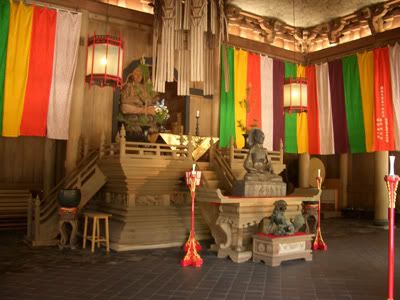
Here is a typical zen main hall where prayer sessions and talks are held.
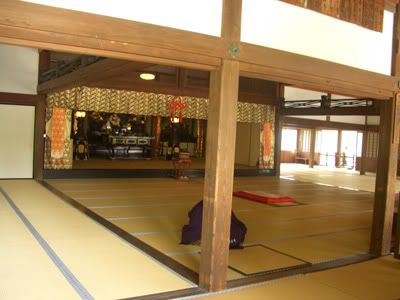
There is an extremely beautiful zen garden at the back of the hall and visitors can just sit at one of the many chairs and appreciate the sight of nature.
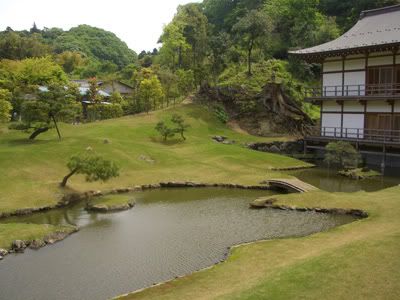
We went on to the back of the temple to the top of the hills. At the top, we caught sight of the mythical statues that is depicted in Buddhist mythology.
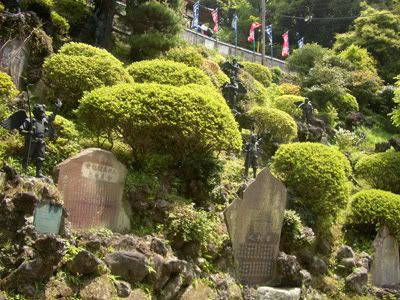
We climbed around the mountains for half an hour, walking through mountian and forest tracks like the one below.
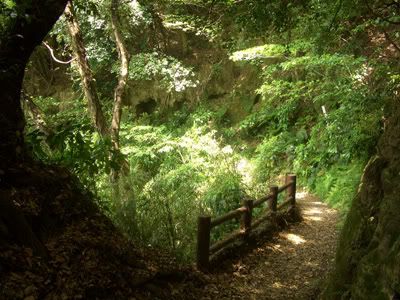
And finally we begin our descend and arrived at a shinto temple. It is 12 noon and the Priest marks the time by drumming up.
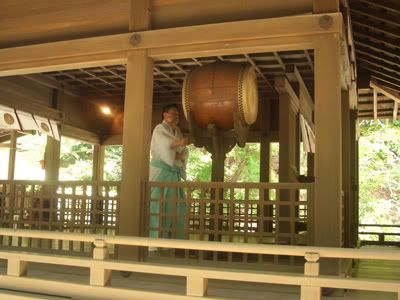
We walked to the next important sight, the Hachimangu Shrine. This shrine is dedicated to the God of War, or Hachiman. It is quite jam packed with people, with lots of devotees throwing their yens and asking for blessings.
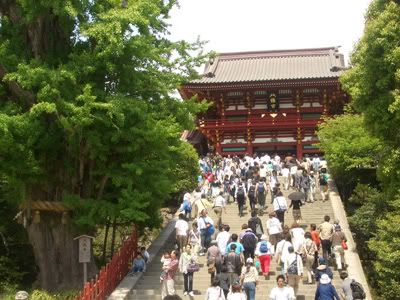
It is closed to lunch time and we had our lunch somewhere close to Kamakura main station. Thereafter we took a train to see the legendary Kamakura Buddha. This is Japan's second largest oldest Buddha. It used to be housed in a temple since the 12th century but had been outdoored after a tsunami came and removed its shelter in the 15th century.
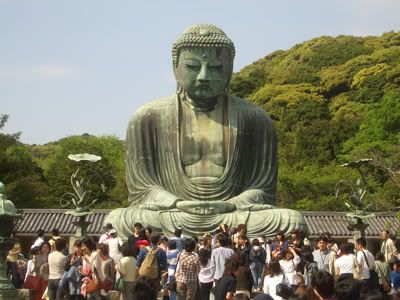
Just 5 minutes down the Big Buddha is Hase temple which showcase a large wood-carving of Kannon. The temple belongs to the esoteric sect of Buddhism - Shingon.
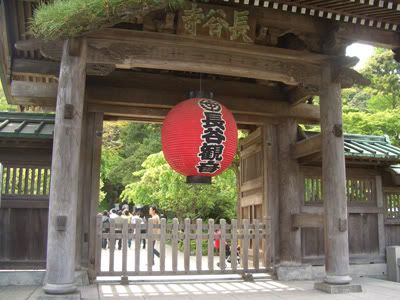
This temple is actually part of a 33 temple track for pilgrims. Two visitors have visited this temple and approached the temple attendent to verified on their pilgrim log.
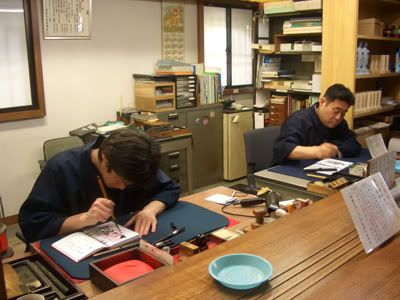
There is another smaller hill to climb behind the temple. This time round it offers a good sea view of Kamakura.
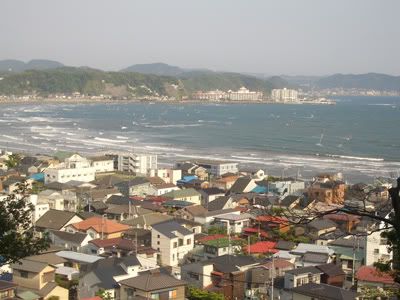
There is a wooden prayer wheel which contains sutras in it. Visitors entered the building and started turning the wheel in the typical clockwise direction. It is somewhat similar to the Tibetan prayer wheel.
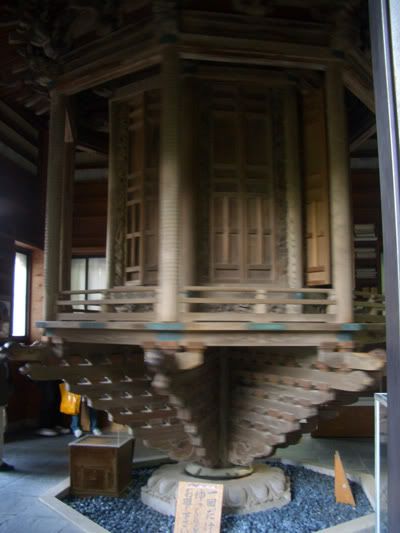
Just down the temple are the thousands of miniature Jizo Bodhisattva. Jizo bodhisattva is regarded highly in Japanese Buddhism in protecting the young and families.
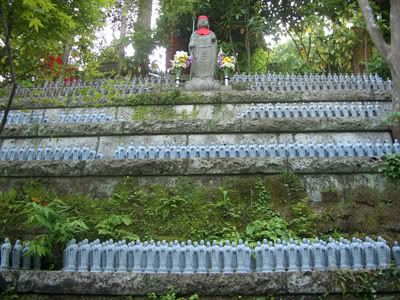
Getting back is a challenge itself. The station is fully packed, so for a 5 minutes ride back will require 20 minutes of waiting time.
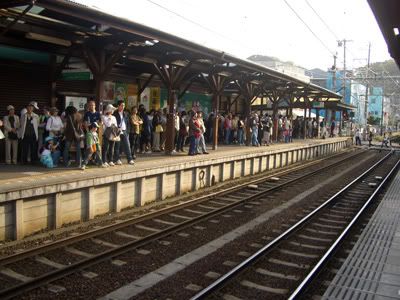
Central Tokyo
And finally we are back in Central Tokyo. Here is a quick shot of Shimbashi (New Bridge).
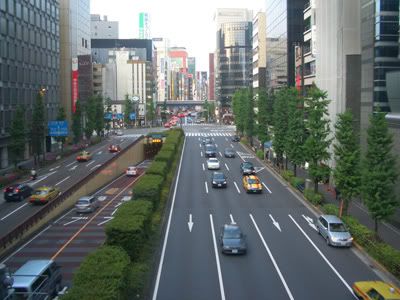
We took the LRT to Odaiba. It is the second time coming here for me. But I had the opportunity of visiting some sights which I missed out previously. Here is the entrance to Fuji TV.
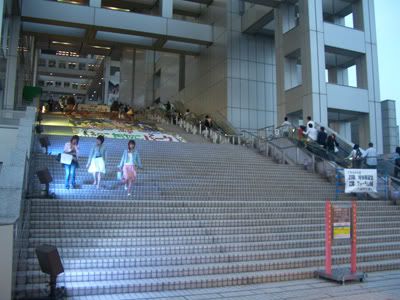
After walking through Fuji TV and observing their broadcasting procedures, we took the front escalator down. Here is a quick shot of the station from the ground up.
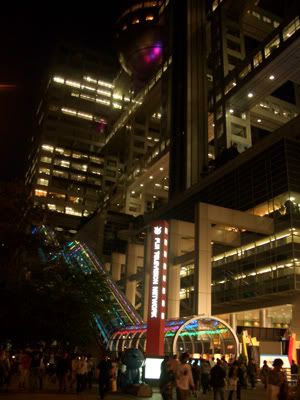
Facing towards the rainbow bridge is a mini Statue of Liberty. I was unable to catch a good shot of it the last time due to its breezy condition.
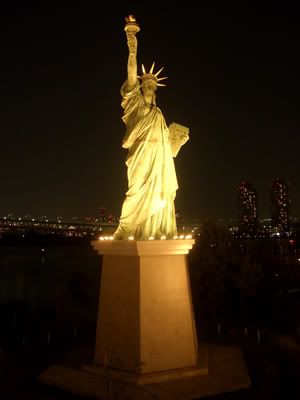
We walked through Aqua City; the main shopping complex of Daiba to Palette Town which is distinctively recognisable in Odaiba by its large Ferris Wheel.
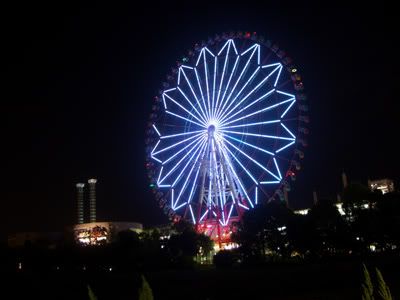
In the interiors of Palette Town, it gives shoppers an illusion that it is still day.
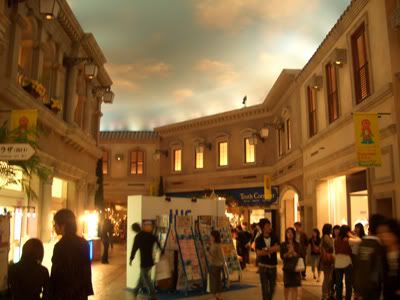
The night will be spent in Odaiba Onsen again. Here we are in traditional Edo attire again.
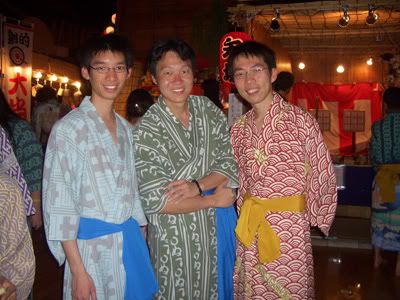
We already had our dinner but decided to go for some local supper. So we went for their bamboo speciality.
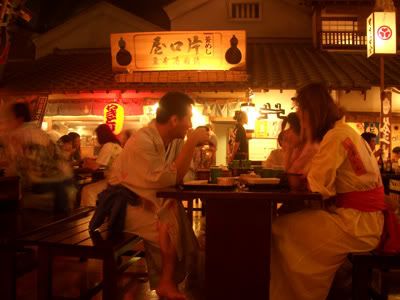
It looks like something below.
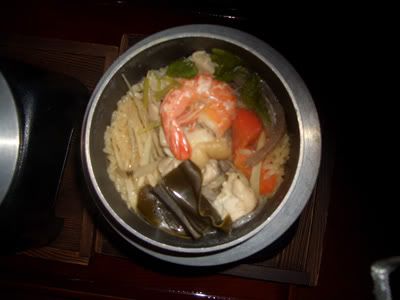
The next day we left Oedo Onsen and decided to take a tour around Odaiba via their LRT line. Just travel in the opposite direction to the end of Odaiba and back to Central Tokyo. Some parts of Odaiba is still under development but it is distinctive in the sense that it gives visitors a good feel of how a future city will look like.
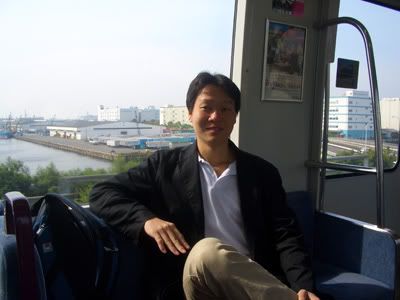
We alighted at Shiodome which is one of the heart of Tokyo's business district. Towering skyscrapers with a pedestrian overhead bridge linking all the buildings together.
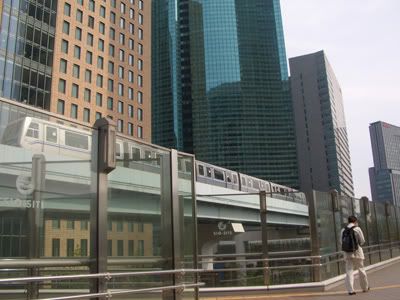
We arrived at our first stop of the day - Tsukiji Fish Market. The last time I came here it was closed. It is closed on the sunday. But this time round, we were fortunate and it is opened!! The market is bustling with lots of human activity. Many of the hawkers travel around the market by the below transportation.
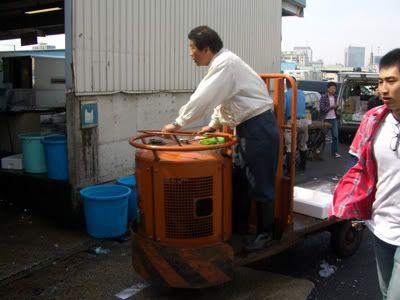
The market with lots of fresh catch of the day.
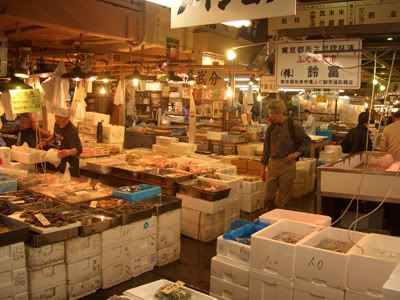
Giant octopuses!!!
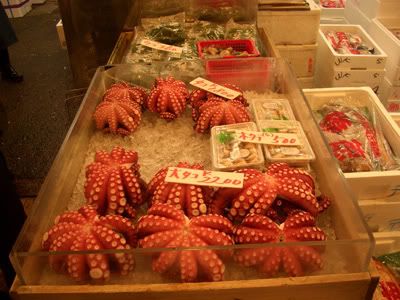
Coming to Tsukiji Fish Market again prompt me to go for another sushi breakfast. We picked the one below.
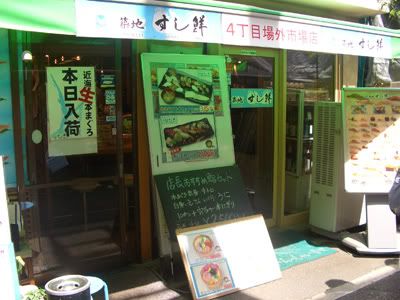
The chef preparing our sushi set.
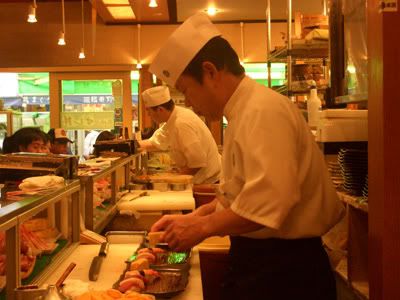
And here is the catch of the day:
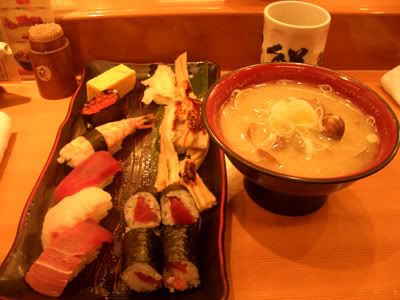
This trip is continued with the visit to Ushiku Daibutsu.
Here is some sights which I noticed along the way. Commutors are encouraged not to use their handphone devices on public transportations (trains and buses) in Japan. All the handphones in Japan have a 'manner mode' built in which switches it to silent mode automatically. It is considered rude to use the handphone openly in the public.
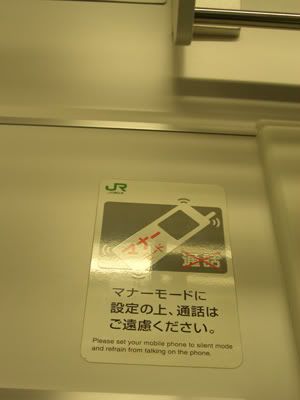
I had the opportunity of using one of the Fare Adjustment Machines. It allows commutors to make changes to their destination when they are travelling. They just have to insert their card and pay the difference. I was intending to travel from Ushiku to Ueno station initially but decided to transit straight to Shinjuku. So all I have to do is to pay the 160 Yen difference at my destination.
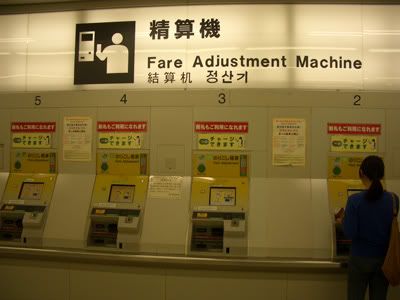
A quick shot of Shinjuku station North entrance.
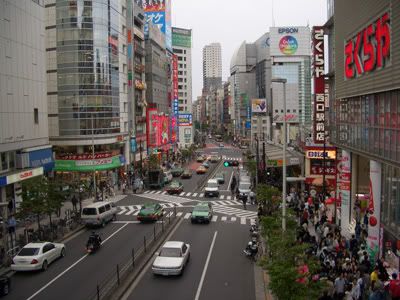
Here is the busy Shinjuku station West entrance with the bus station right in front.
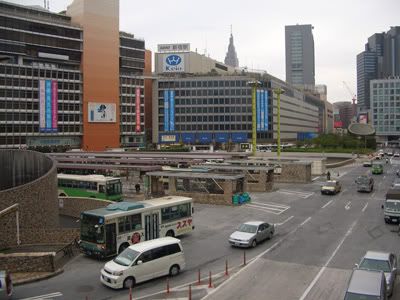
Just East of Shinjuku station is the government and business offices of Tokyo. I made a round through the offices.
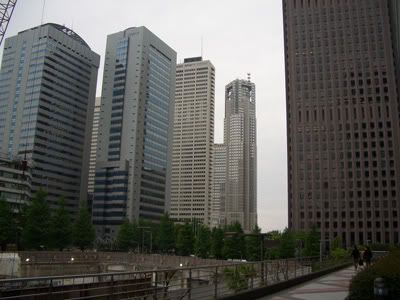
Here is Japan's main parliament building.
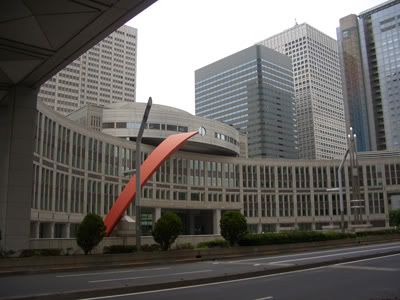
One of the many busy traffic junctions of Shinjuku. The temperature of Tokyo is 22 degree celsius.
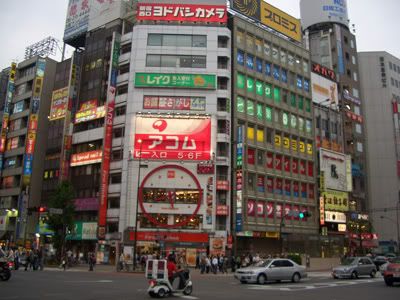
And finally a visit to Times Square. It has a 7-storey Kinokuniya there. I spent around an hour browsing through the books, especially the Buddhism section and bought a book which introduces on Buddhism, in particular Japanese Buddhism. (It is in Japanese).
